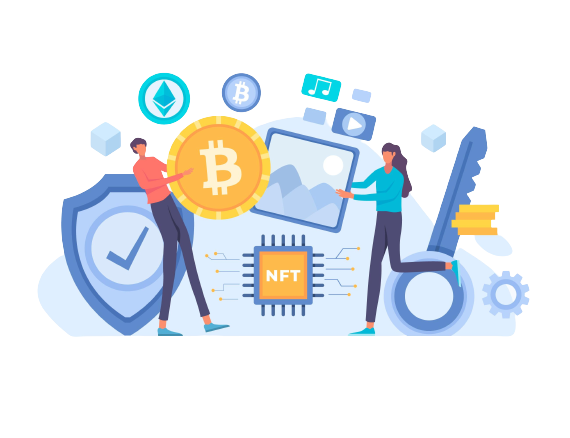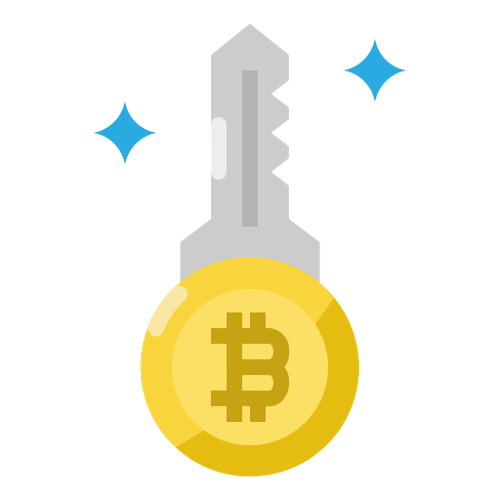
Banking as we know it is fundamentally constrained by centralized control, limited access, and lack of individual sovereignty. But what if there was a parallel financial system that challenged these limitations? One that offers an escape route from the pitfalls of traditional banking for those seeking true financial self-determination.
In this extensive guide, we’ll explore how Bitcoin wallets provide that gateway to a censorship-resistant economic system outside the mainstream. We’ll demystify Bitcoin wallets, look at different types, understand key features, and dig into the broader context around decentralized money. By the end, you’ll have clarity on how Bitcoin wallets can help you break free from normalized financial control paradigms.
The Tyranny of Mainstream Banking
To appreciate the liberating power of Bitcoin, we must first acknowledge how traditional banking chains us down:

Geographic restrictions – Banking beyond borders is complex with little recourse against arbitrary account closures.
Counterparty risk – You must trust centralized entities to safeguard your hard-earned money.
Seizure and freezes – Assets can be frozen or seized at any time without your consent.
Surveillance overreach – Every transaction is monitored for opacity rather than privacy.
Censorship and discrimination – Banks can deny services to lawful industries they deem unfavorable.
Identity overlords – Your financial life hinges on validation from flawed bureaucratic systems.
Political manipulation – authorities pressure banks to blacklist dissidents and cripple political opponents.
Depreciating assets – Savings lose purchasing power over time through inflationary monetary policies.
Institutional inertia – Depositor needs to take a backseat to profit-driven motives and slow bureaucracies.
These systemic coercions and risks are so normalized that most don’t think twice about them. But compared to the emancipation offered by Bitcoin, the failings of legacy banking become glaringly obvious.
The Promise of Bitcoin
Bitcoin presents an alternative – a decentralized peer-to-peer financial system independent of central banks and gatekeepers. But how exactly does it circumvent the challenges mentioned?
Permissionless – Bitcoin is open for anyone to use without seeking approval from authorities. Decentralization has no single point of control.
Unconfiscatable – Since funds are secured cryptographically, no entity can freeze or seize your Bitcoin without consent.
Uncensorable – Transactions cannot be blocked or denied by any intermediary due to censorship policies.
Pseudonymous – Users interact with the network using alphanumeric public addresses rather than verified personal identities. This enhances privacy and autonomy.
Portable – Bitcoin can be accessed using just a recovery phrase from anywhere with an internet connection. This enables self-sovereign money across borders.
Transparent – All transaction data is publicly verifiable on the blockchain providing transparency without compromising privacy.
Disinflationary supply – Bitcoin’s fixed cap of 21 million units ensures scarcity and prevents arbitrary inflation.
User-controlled – You directly control holdings with private keys. No central org controls assets or maintains ledgers.
Immutable – Cryptographically-secured records of transactions cannot be altered. The blockchain remains authoritative.
These tenets attract individuals seeking liberation from financial repression. Bitcoin shifts power from institutions back towards the edges – into the hands of users.
However, this requires utilizing interfaces like Bitcoin wallets to access the network. Before jumping in, let’s demystify what Bitcoin wallets are and how they function.
Demystifying Bitcoin Wallets
Several misconceptions exist about the nature and role of Bitcoin wallets. Let’s clear up some common myths:
Myth: Wallets store your Bitcoin units.
Fact: Bitcoin units are entries on the blockchain, not physical assets. Wallets store the keys that control access to blockchain entries.
Myth: Possessing a wallet means owning Bitcoin
Fact: Just having a wallet does not make you a Bitcoin owner. You must acquire units separately and have them associated with wallet keys to control the funds.
Myth: Lost wallet means lost Bitcoin
Fact: Losing access to a wallet does not result in Bitcoin losses. As long as you retain backup of the wallet keys, you can recover funds even if the original wallet is inaccessible.
Myth: Wallets identify users
Fact: Wallets do not have identities. You remain pseudonymous by only interacting via your public address. Private keys alone prove ownership.
Myth: More wallets = more Bitcoin capacity
Fact: The number of wallets has no impact on Bitcoin holdings. 1 BTC remains 1 BTC regardless of being spread across multiple wallets or held in a single wallet.
Now that we’ve cleared up common misconceptions, let’s look at how Bitcoin wallets work under the hood.
At a technical level, Bitcoin wallets manage key pairs – a public key and a private key. These keys are crucial for interfacing with the Bitcoin network. Here are the key functions:
Public key – This key is essentially your wallet address, displayed as a long string of letters and numbers. It allows others to send you Bitcoin.
Private key – This key proves you own the wallet. Similar to a PIN code, it provides authorization to spend from the wallet.
Key pairs – The public and private keys are mathematically linked. The private key derives the public key using cryptographic algorithms.
Wallet software – This code manages the keys, enabling discovery, access control, backups, generation of new addresses, etc.
So in essence, your Bitcoin holdings are not stored inside wallets. Bitcoin units exist on the distributed blockchain ledger. Wallets contain the private keys required to authorize transactions related to your blockchain entries.
Different Types of Bitcoin Wallets
Now that you know technically what a Bitcoin wallet represents, let’s look at the main options available:
Hardware Wallets
These are physical devices, typically resembling USB drives, that generate and contain your private keys offline. Some examples are Ledger, Trezor, and KeepKey.
Pros: Highest security, offline key storage, support many cryptocurrencies Cons: Costlier, must secure physical device
Software Wallets
Software programs on your PC, mobile, or web browser that provide private key access and signing functions. Examples include Bitamp, Exodus, Electrum, and Mycelium.
Pros: Free, convenient access on different devices Cons: Keys vulnerable if device is compromised, must backup regularly
Paper Wallets
Keys are printed on paper or etched on metal. Popular options include Bitkee and Cryptosteel.
Pros: Completely offline, ultra-secure Cons: Not convenient for frequent transactions, paper may be damaged
Web/Online Wallets
Private keys are stored by a third-party custodial provider and accessed via a web or mobile interface. Examples include Coinbase, Blockchain.com, and Robinhood.
Pros: Easy to use, beginner-friendly, integrated purchase services Cons: Security risks of centralized custody, lack of full control
The type of wallet you choose depends on factors like convenience, transaction frequency, and security priorities. As a rule, maximize control of your private keys for better privacy, portability, and independence.
Now let’s dig into the key features offered by most Bitcoin wallets:
Key Features of Bitcoin Wallets

Private key control – Full ownership of your private keys means true financial sovereignty. Avoid custodial providers who maintain control.
Backup & restoration – A backup of wallet data like seed phrases allows recovery in case of device loss. Test restoration periodically.
Security protections – Features like password encryption, 2FA, multi-sig, and anti-phishing phrases enhance security against theft and scams.
Multiple address management – Software wallets provide easy visibility across multiple Bitcoin addresses in a single dashboard.
Transaction tools – Useful functionality like transaction builders, fee estimators, payment requests, and invoices streamline transactions.
Hierarchical Deterministic (HD) – HD wallets generate virtually unlimited addresses from a single seed phrase according to a standard called BIP32.
Open source code – Wallets that are built using publicly auditable open source code inspire greater confidence in their security models.
Non-custodial – Wallets where you solely control your private keys without relying on or trusting any intermediary organization.
Hardware integration – Linking hardware wallets via USB allows cold storage keys to interact securely with software interfaces.
Customer support – Reputable wallets offer prompt support services to assist users facing any technical issues.
With these parameters in mind, let’s look at examples of some of the best Bitcoin wallets available today:
Hardware: Ledger Nano X, Trezor Model T
Software: Electrum, Bitamp, Exodus
Mobile: Bitamp, Samourai, BRD
Web: Coinbase, Blockstream Green
These leading options expertly cover the core features mentioned earlier at varying degrees of convenience and security. Do your research to determine what best meets your needs.
Securing Your Bitcoin Wallets
Being your bank means taking security seriously. Here are some tips to keep your Bitcoin wallets and holdings safe:
Master seed phrases – The 12/24-word backup phrase is the master key. Never store it electronically. Stamp it in metal as a backup.
Private key shields – Hardware wallets and paper wallets isolate the private key offline away from internet connectivity risks.
Multisig setups – Require multiple sign-offs before large transactions are authorized. This prevents unilateral control.
Update firmware & software – Keep device firmware and wallet software updated to the latest secure versions.
Strong passwords – Use long randomized passwords everywhere. Password managers help create and store them.
Watch for scams – Phishing links, fake wallets, etc try to steal keys and funds. Verify authenticity directly rather than through emails/messages.
Multiple backups – Maintain copies of backup phrases and data across different secure locations in case of failures or disasters.
Test recovery – Periodically test restoration from seed phrase backups to ensure the recovery process works when needed.
Following security best practices is a continuous process as threats evolve. But the effort is worth it to enjoy the freedoms and independence Bitcoin provides!
Transacting with Bitcoin Wallets
Now that your wallet is secured, let’s look at how to use it to send and receive Bitcoin:
Receiving Bitcoin
Share your public wallet address where you want to receive funds. Avoid typos.
You can usually find the address to share under the ‘Receive’ section of your wallet.
Each transaction will have a unique address. Wallets reuse addresses for privacy.
Make sure the sender includes sufficient miner fees for fast processing. Many wallets estimate the required fees.
The balance should be reflected in your wallet once the transaction is broadcast and confirmed.
Sending Bitcoin
Paste the recipient’s wallet address carefully. Double and triple-check check there are no errors!
Enter the amount to send. Application may subtract miner fees.
Some wallets require identity verification or a scan of a fingerprint/face ID before signing off on the transaction.
Review the details before confirming. Once confirmed, transactions are irreversible!
Funds are deducted from your wallet and you can track the processing status on a block explorer.
Larger transfers may require multiple blockchain confirmations before being settled.
With these basics covered, you are ready to send and receive Bitcoin peer-to-peer by simply scanning QR codes or copying/pasting addresses!
Tips for Everyday Bitcoin Wallet Usage
Here are some additional tips for integrating Bitcoin wallets into your everyday crypto usage:
Explore apps – that allow you to pay for coffee or dinner directly from a Bitcoin wallet. This helps adoption.
Dollar-cost average – Regularly accumulate Bitcoin in your wallet by buying small standard amounts over time rather than a large lump sum. This reduces risk from volatility.
HODL for savings – Holding Bitcoin for the long term in your wallet is proven to appreciate greatly as demand increases against limited supply.
Earn Bitcoin – Sign up for accounts that pay for completing tasks or provide Bitcoin rewards for shopping. Withdraw to your wallet.
Learn security – Continuously educate yourself on wallet security and best practices to avoid costly mistakes.
Explore micropayments – Certain wallets and apps allow you to send tiny Bitcoin amounts, unlocking micropayment use cases.
Schedule automatic buys – Many exchanges allow scheduling regular small buys that transfer straight into your wallet upon execution.
Engage communities – Participate in forums and social channels to grow your understanding of how fellow users leverage Bitcoin wallets.
Run a node – Consider contributing to the decentralized network by running Bitcoin core software on a server to host a full node with your wallet.
Adopting Bitcoin wallet habits requires a mindset shift. But over time it opens up entirely new opportunities beyond legacy banking.
Real-World Examples of Bitcoin Wallets in Action
To appreciate the empowering impact of Bitcoin wallets, consider these real-world examples:
Venezuelans used Bitcoin to preserve savings during times of extreme hyperinflation when the national currency became worthless.
Dissidents in authoritarian regimes avoid state financial surveillance and censorship via their Bitcoin wallets, accessing a free open financial system.
Developing nations leverage Bitcoin and wallets to bootstrap economies by tapping into participatory global commerce from which they were previously excluded.
Activists collect donations directly into their Bitcoin wallets rather than relying on the politicized agendas of payment networks like Visa and PayPal.
Sanctioned nations utilize Bitcoin and wallets to circumvent trade embargoes and transact freely outside U.S. financial hegemony.
Individuals send remittances across borders to support families much cheaper and faster via Bitcoin wallets compared to incumbent remittance brokers.
Refugees fleeing conflicts can evacuate with their entire wealth contained in a memorized seed phrase rather than unreliable local currency notes.
These real-world examples illustrate Bitcoin’s power to bank the unbanked and lift individuals out of oppressive financial regimes.
Escaping Financial Repression With Bitcoin Wallets
Bitcoin wallets provide the gateway to take part in a decentralized financial system that defies convention:
No geographic discrimination – Bitcoin functions the same universally, allowing seamless global commerce.
No third-party risk – You remain solely responsible for your funds. No central authority can seize or freeze holdings.
No account shutdowns – Censorship-resistant crypto networks cannot block access to holdings.
No identity requirements – You can transact pseudonymously without providing personal information and documents. This preserves privacy and autonomy.
No transaction blocking – Payments cannot be stopped or reversed by any intermediary once initiated on the blockchain.
No deposit limits – You can secure any amount you want in a Bitcoin wallet. Limits are determined solely by network parameters, not by any authority.
No capital controls – Wealth preservation and movement become uninhibited across borders due to crypto’s portability.
No surveillance overreach – Transactions offer pseudonymity rather than full transparency to prying eyes. Only amounts are public, not identities or purposes.
No confiscation – Crypto keys are secured cryptographically. No entity can forcibly appropriate holdings without consent.
These powerful attributes provide individuals with financial sovereignty. Bitcoin wallets bestow users with a choice – an alternative to centralized coercion and repression.
Conclusion
With a foundational understanding of Bitcoin wallets, you are now equipped to leverage the emergence of decentralized money to take greater control over your financial autonomy. As you dig deeper, you may find your relationship with money and finance transformed.
value shifts from fickle institutional trust towards mathematically verifiable certainty. You rely less on custodians and intermediaries, becoming responsible for securing your holdings. An entire parallel crypto economy emerges where transactions occur peer-to-peer following consensus rules enforced by unstoppable code and cryptographic integrity.
Of course, the learning curve is still steep. Technology constraints remain. Mainstream adoption is still nascent. Yet even utilizing Bitcoin wallets in a limited capacity serves as a self-sovereign act of financial freedom and resistance against normalized repression. It expands possibilities beyond legacy banking.
The next time you use your Bitcoin wallet, appreciate you are participating at the bleeding edge of a financial revolution. While still risky and unstable, the promise of a more equitable and open system continues to attract talent and capital. Just make sure your funds are secured using a wallet you control.
Financial emancipation ultimately requires emancipating yourself from centralized intermediaries completely. Mastering Bitcoin wallets provides the key.